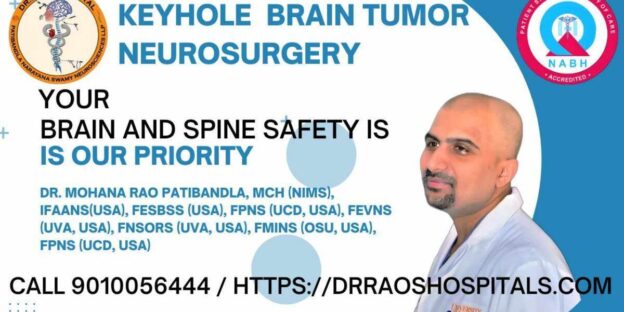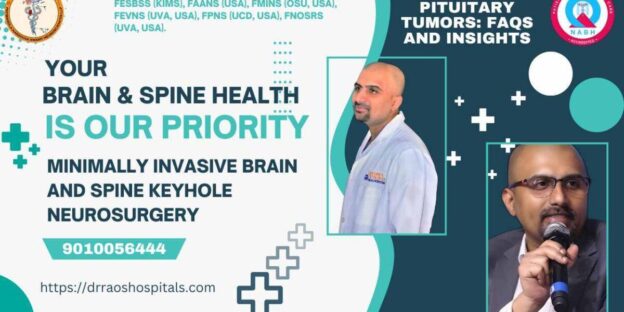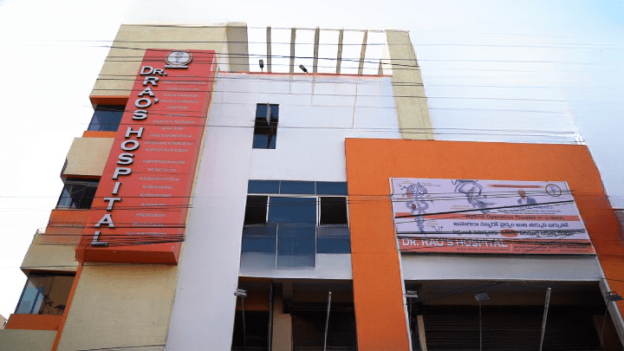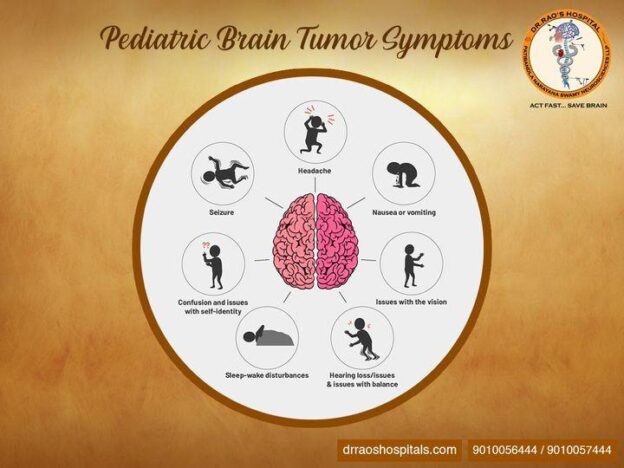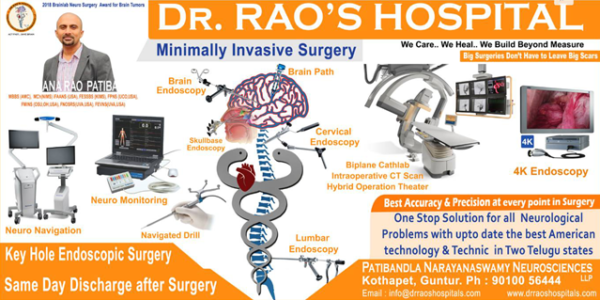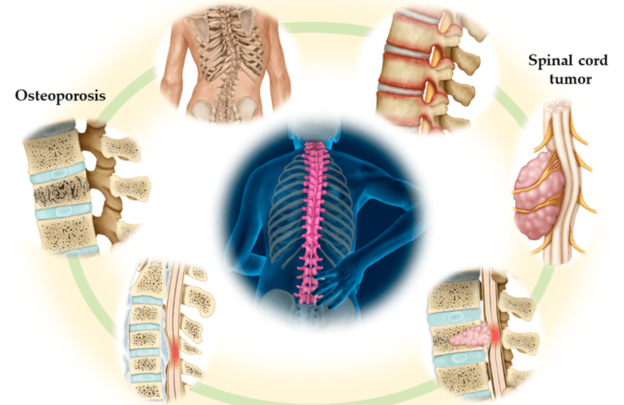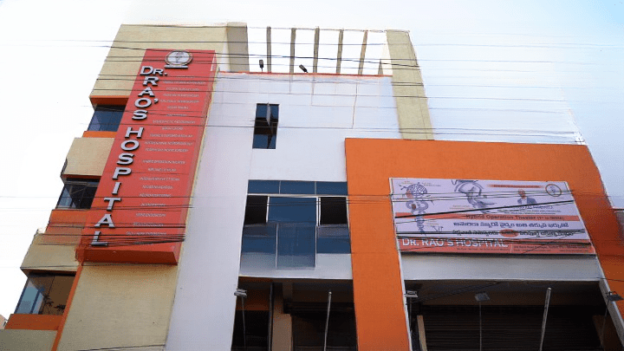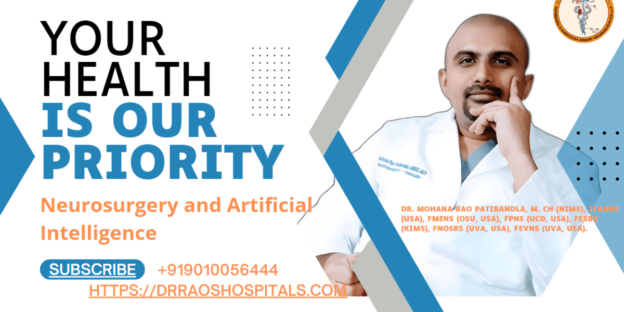Neurosurgery FAQs | Expert Insights | Dr. Rao’s Hospital
Unlock the mysteries of neurosurgery with our latest video! Join us as we address 50 frequently asked questions about this critical medical field. And don’t miss the chance to learn about Dr. Rao’s Hospital, the leading institution for brain and spine care in Andhra Pradesh. For world-class expertise and compassionate care, visit drraoshospitals or call 090100 564441. #Neurosurgery #Healthcare #DrRaosHospital
Next 50 common neurology-related questions in Google:
- What is cervical radiculopathy?
- Cervical radiculopathy is when the nerves in the neck (cervical spine) become compressed or irritated, often leading to pain, weakness, or numbness that can radiate down the arm.
- How is cervical radiculopathy diagnosed?
- Diagnosis typically involves a physical examination, medical history review, and imaging studies such as X-rays, MRI, or CT scans.
- What is a lumbar spinal stenosis?
- Lumbar spinal stenosis is when the spinal canal in the lower back narrows, often causing pain, numbness, or weakness in the legs.
- How is lumbar spinal stenosis treated?
- Treatment may include physical therapy, medication, or, in severe cases, surgical procedures to relieve pressure on the spinal cord.
- What is cervical spinal stenosis?
- Cervical spinal stenosis is a narrowing of the spinal canal in the neck, potentially leading to symptoms like neck pain, weakness, or tingling in the arms or legs.
- How is cervical spinal stenosis treated?
- Treatment options may include physical therapy, medication, or surgery to alleviate spinal cord compression.
- What is a neurologist’s role in treating migraines?
- Neurologists are specialists who diagnose and manage migraines, often prescribing medications and lifestyle changes to prevent and alleviate migraine attacks.
- What are the early signs of ALS?
- Early signs of Amyotrophic Lateral Sclerosis (ALS) can include muscle weakness, twitching, and difficulty speaking or swallowing.
- What is an EEG (electroencephalogram)?
- An EEG is a test that records electrical activity in the brain, aiding in diagnosing conditions like epilepsy and other neurological disorders.
- How is a lumbar puncture performed?
- A lumbar puncture is a procedure where a needle is inserted into the lower back to collect cerebrospinal fluid for diagnostic purposes.
- What is a neurocognitive disorder?
- Neurocognitive disorders, previously known as dementia, are conditions that affect cognitive functions like memory, thinking, and reasoning.
- What are the symptoms of neuropathic pain?
- Nerve damage or dysfunction is a common cause of neuropathic pain, which is characterized by burning, shooting, or stabbing pain.
- What is the difference between epilepsy and a seizure disorder?
- Epilepsy is a chronic neurological condition characterized by recurrent seizures. A seizure disorder is a broader term for any condition involving seizures.
- What is a neurosurgeon’s role in treating brain tumors?
- Neurosurgeons are specialists in the surgical treatment of brain tumors, aiming to remove or manage them while preserving brain function.
- What is the Glasgow Coma Scale used for?
- The Glasgow Coma Scale assesses a patient’s level of consciousness after a head injury, stroke, or other neurological condition.
- What is a nerve biopsy?
- A nerve biopsy is a procedure to remove and examine a sample of nerve tissue to diagnose neuropathies or other nerve disorders.
- How is a brain aneurysm treated?
- Treatment options include surgical clipping, coiling, or endovascular procedures to prevent the rupture of a brain aneurysm.
- What is deep brain stimulation (DBS)?
- Deep brain stimulation is a surgical procedure where electrodes are implanted in the brain to manage symptoms of movement disorders like Parkinson’s disease.
- What is the Mini-Mental State Examination (MMSE)?
- The MMSE is a brief 30-point questionnaire to assess cognitive impairment and dementia.
- What is a pediatric neurologist?
- A pediatric neurologist is a specialist who diagnoses and treats neurological conditions in children.
- What is neurofibromatosis?
- Neurofibromatosis is a genetic disorder that leads to the growth of tumors in the nervous system.
- What is a neurotologist?
- A neurotologist is an otolaryngologist (ear, nose, and throat specialist) who focuses on the neurological aspects of hearing and balance.
- What is a neurotoxin?
- A neurotoxin is a substance that can harm or affect the nervous system, potentially causing paralysis or other neurological symptoms.
- What is a neurogenic bladder?
- A neurogenic bladder is a condition where the bladder doesn’t function properly due to a neurological problem.
- What is neuroplasticity?
- Neuroplasticity is the brain’s ability to reorganize itself by forming new neural connections throughout life, allowing it to adapt to learning and recovery after injury.
- What is the difference between a neurologist and a neuropsychiatrist?
- While both deal with brain-related conditions, neuropsychiatrists specialize in psychiatric disorders with neurological origins, while neurologists focus on the broader spectrum of neurological disorders.
- What is neurocysticercosis?
- The tapeworm Taenia solium is what causes neurocysticercosis, a parasitic brain infection.
- What is a neurogenic tumor?
- A neurogenic tumor is a growth that originates from nerve cells or tissues and can be benign or malignant.
- What is a neurointensivist?
- A neurointensivist is a physician who specializes in the care of critically ill neurological patients, often in an intensive care unit (ICU).
- What is the blood-brain barrier?
- The blood-brain barrier is a protective barrier of cells that controls the passage of substances from the bloodstream into the brain.
- What is neurofeedback?
- Neurofeedback is a type of biofeedback that helps individuals self-regulate brain activity to improve conditions like ADHD, anxiety, or PTSD.
- What is a neurocutaneous syndrome?
- Neurocutaneous syndromes are genetic disorders that affect the skin and nervous system, such as neurofibromatosis and tuberous sclerosis.
- What is a neurovascular disorder?
- Neurovascular disorders involve abnormalities of the blood vessels in the nervous system, including aneurysms, arteriovenous malformations, and strokes.
- What is the difference between neurology and neurosurgery?
- Neurology is the medical specialty that deals with diagnosing and non-surgical treatment of neurological conditions, while neurosurgery involves surgical interventions for neurological disorders.
- What is neuroimmunology?
- Neuroimmunology studies interactions between the immune system and the nervous system, focusing on diseases like multiple sclerosis.
- What is a neuro-ophthalmologist?
- A neuro-ophthalmologist specializes in diagnosing and treating visual problems related to neurological conditions.
- What is a neuroanatomist?
- A neuroanatomist is a scientist who studies the anatomy of the nervous system, including the brain and spinal cord.
- What is the difference between neurology and psychiatry?
- Neurology deals with the diagnosis and treatment of physical disorders in the nervous system, while psychiatry focuses on mental health and psychiatric disorders.
- What is a neurovirus?
- A norovirus is a virus that can infect and affect the nervous system, potentially causing neurological symptoms.
- What is neuroepidemiology?
- Neuroepidemiology studies the distribution and determinants of neurological diseases in populations.
- What is a neurodevelopmental disorder?
- Neurodevelopmental disorders are conditions that affect the development of the nervous system, often leading to developmental delays or disabilities.
- What is neurooncology?
- Neurooncology is a medical specialty that deals with the diagnosis and treatment of brain and spinal cord tumors.
- What is a neuroendocrinologist?
- A neuroendocrinologist specializes in the interplay between the nervous system and the endocrine system, which controls hormones.
- What is the neurobiology of learning and memory?
- The neurobiology of learning and memory involves studying the brain processes and structures that underlie our ability to learn and remember information.
- What is a neurohospitalist?
- A neurohospitalist is a neurologist who focuses on providing care to patients in a hospital setting.
- What is neuropharmacology?
- Neuropharmacology studies how drugs affect the nervous system, both for therapeutic and research purposes.
- What is neuroimmunomodulation?
- Neuroimmunomodulation refers to the modulation of the immune response in the nervous system, often in the context of diseases like multiple sclerosis.
- What is neuroprotection?
- Neuroprotection involves strategies and treatments aimed at preserving the nervous system and reducing damage during neurological disorders or injuries.
- What is a neuroplastic surgeon?
- A neuroplastic surgeon is a specialist who focuses on reshaping and reconstructing the nervous system, often in the context of injuries or disorders.
- What is the neuroanatomy of the brain? Neuroanatomy of the brain refers to studying the brain’s structure and its various regions, each responsible for specific functions and processes.

